How a motorcycle trip can help you embrace L.A.’s forested bounty
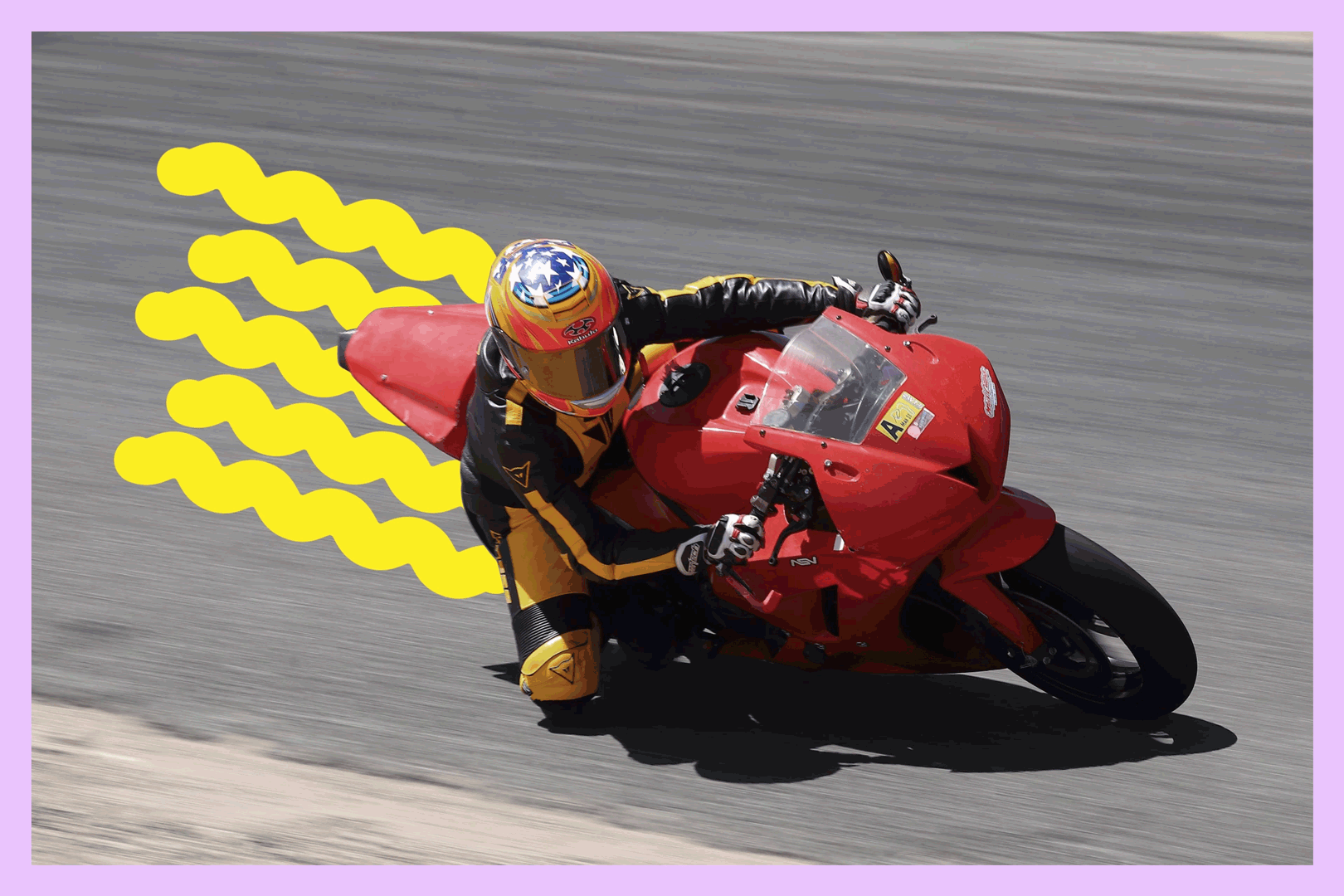
- Share via
Perched on her Triumph Daytona 675, Queena Quý leans into the curve of California Highway 2 from Wrightwood into the Angeles National Forest. She’s focused but relaxed, soothed by the sights and smells of the forest around her. A sport touring aficionado, Quý says she feels most in sync with nature, her machine and herself on winding roads.
Motorcycling may be a comparatively risky mode of transportation, with motorcyclist deaths at nearly 24 times the number of car deaths per mile traveled in 2021, according to U.S. Department of Transportation statistics. But Quý, who competes in sport touring races and coaches other motorcyclists, says practitioners of the sport also reap huge rewards by connecting with the world around them.
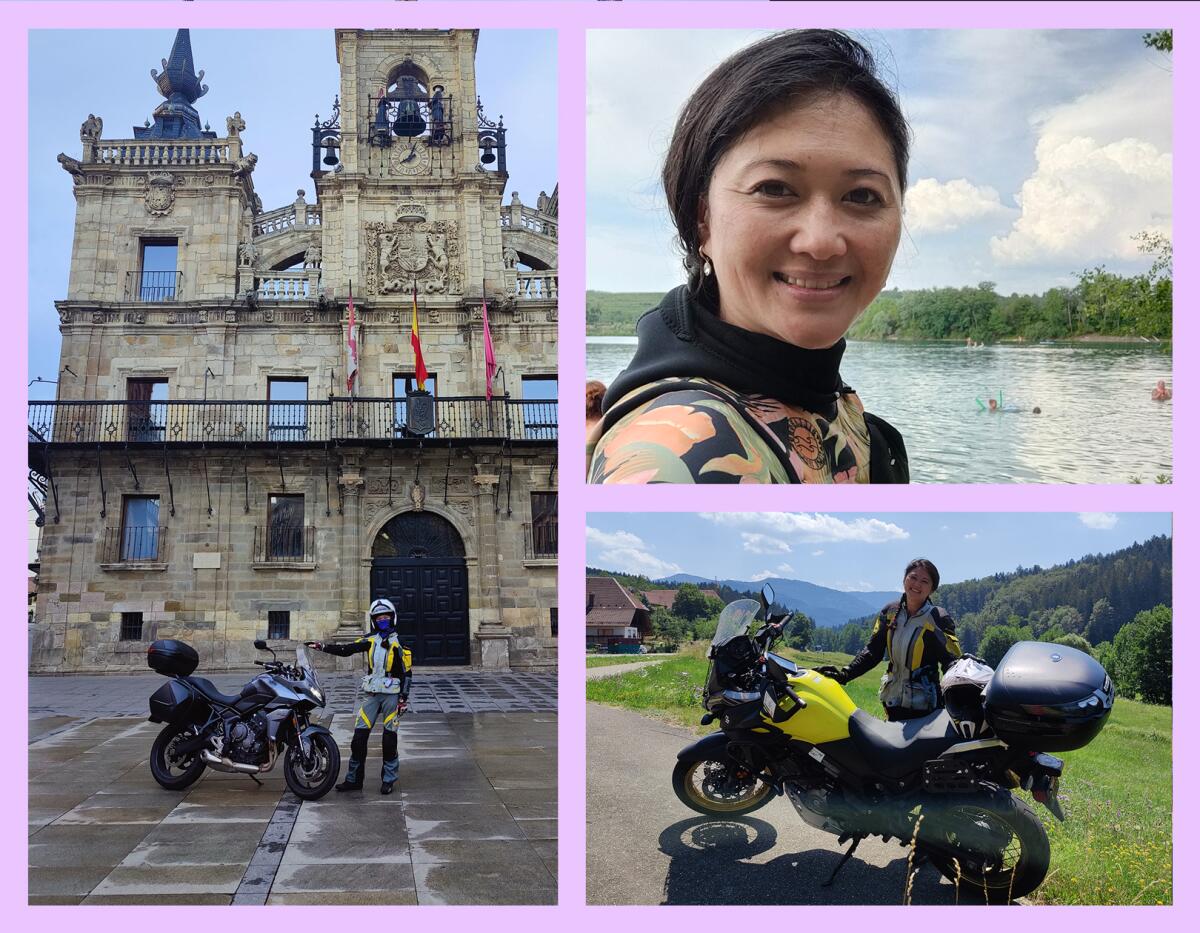
“When you’re riding a motorcycle through nature, you’re focused on the precision of what you’re doing, but you’re also immersed in the scenery around you,” coach Quý says. “It also takes you to places you never expected to visit before.”
Quý’s all-time favorite SoCal destination is Wrightwood, a San Bernardino County town that boasts thick groves of Jeffrey pines and Douglas firs, along with plenty of skiing and hiking. “Wrightwood is so beautiful, you have amazing views and Inspiration Point is a wonder.” Quý parks her motorcycle and camps overnight near Inspiration Point, where she enjoys the quiet and solitude, and often sees wildlife. An added plus: on weekday rides, there are few cars on the road, she says, or even other motorcyclists.
While others brace themselves for the curvy roads of our mountain ranges, Quý embraces them. “For sport touring motorcyclists, we love curvy roads, because it lets us use a machine at its best, throttle faster and smoother when we take a turn, and enjoy it even more. It’s almost like you’re flying on your own spaceship.”
On these rides, Quý stops to explore local towns, visiting nature trails and forests, as well as shops, restaurants and museums. “Motorcycling is about roaming about, but also about enjoying what an area has,” she says. “You wouldn’t think badass bikers are into nature, but once you see them getting off their bikes, taking off their helmets and enjoying the view on a walk around a lake or to a waterfall, you know they really love it. You can just find a point on Google Maps, find a bunch of zigzags, all sorts of crazy turns and then you end up in a town with a lot of history or geography and enjoy it for an hour or two.”
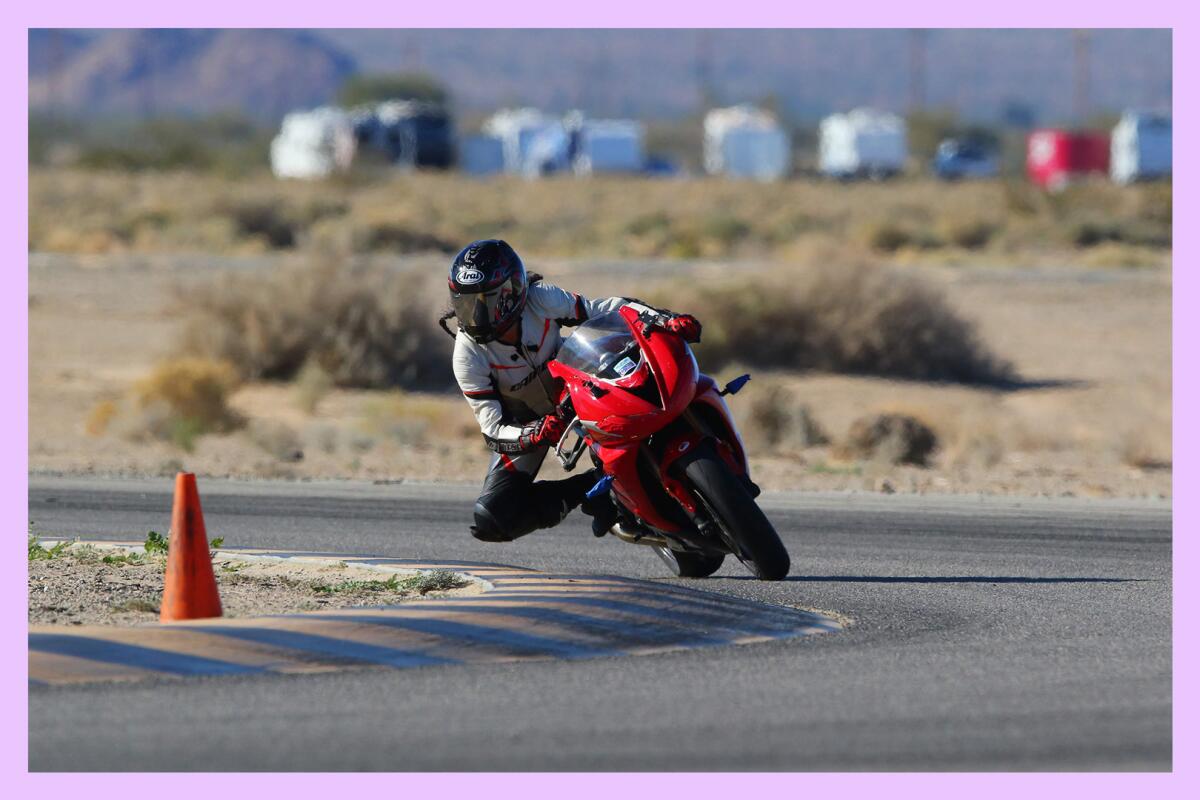
Quý started riding a motorcycle 17 years ago as a 20-year-old living in San Diego, but found renewed comfort in her passion during the COVID-19 pandemic. Accustomed to traveling the world and living out of a suitcase as she roared from one motorcycle race to another, the pandemic forced her to re-explore her local roads.
The native Californian, who grew up in Morgan Hill and moved to Los Angeles in 2015 to find work in health care marketing, found her motorcycle her main source of comfort after the lockdown started in March 2020. In 2021, she started riding to Yosemite National Park from her then home in Orange County.
“I went to Yosemite seven times that year,” Quý says. “I was infatuated with the quietness of nature and seeing all the trees.”
Get The Wild newsletter.
The essential weekly guide to enjoying the outdoors in Southern California. Insider tips on the best of our beaches, trails, parks, deserts, forests and mountains.
You may occasionally receive promotional content from the Los Angeles Times.
In 2022, she was involved in a serious motorcycle accident. “I was in the hospital for six weeks, but it helped me survive other parts of my life, because once I learned to regulate my body and focus on healing it, all the other bills and issues in life came easy.”
She says rides like ones she takes to Yosemite help her heal. “(Riding) helped with my memory after my accident and concussion. Being in nature helped me plug in and remember more.”
Quý has faced her share of spills, and she’s serious about continuing education for herself, and other riders. “I’ve had a lot of spills and half my falls were because I was stupid and didn’t do the right maneuver,” Quý says. To try to mitigate the risks of riding on the same road as L.A. drivers, she says she mostly stays close to the speed limit, and “trains religiously,” taking a motorcycle training course once every three months.
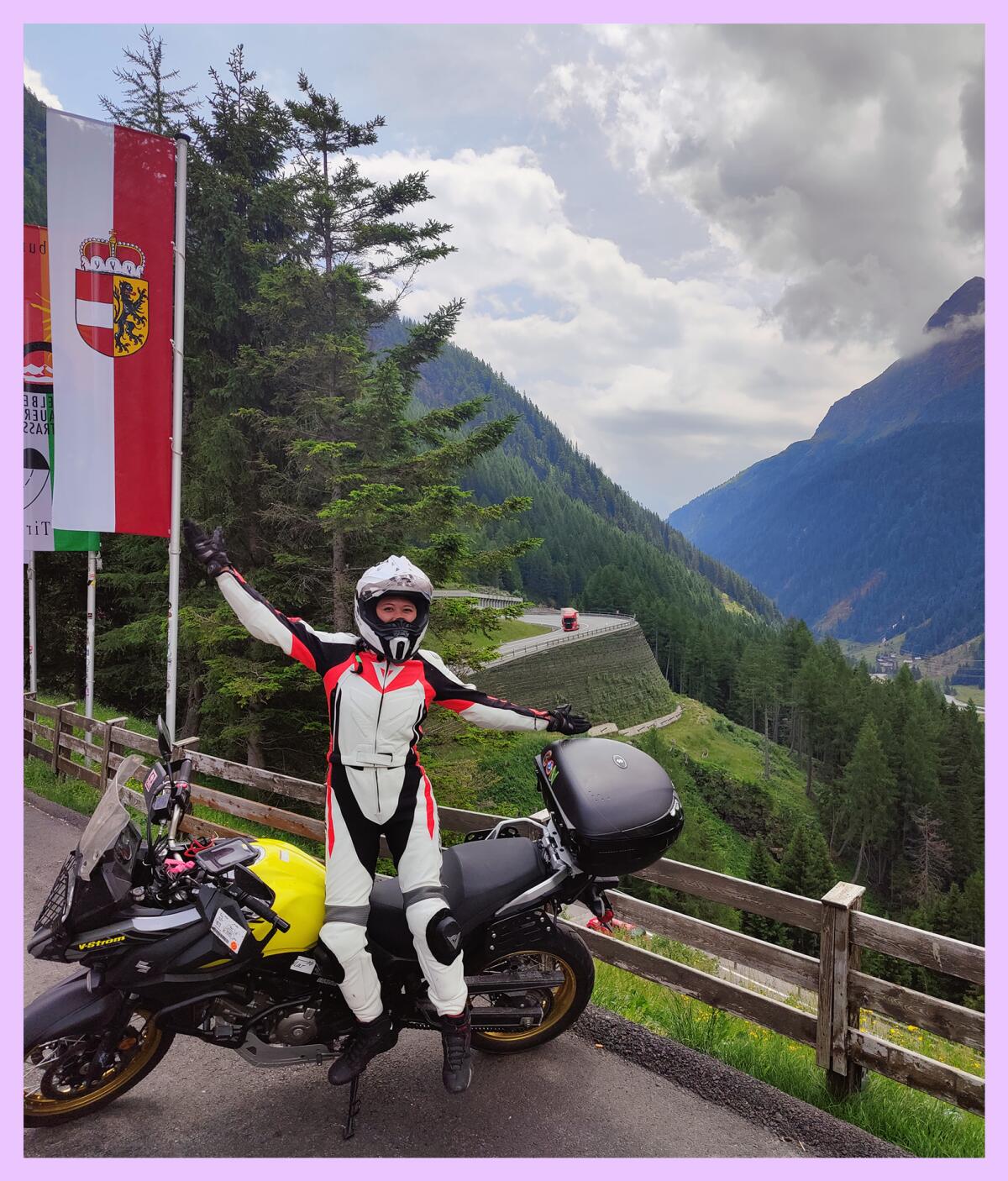
The accomplished motorcyclist has spent the last five weeks in Germany touring, and would like to see Angeleno drivers look for motorcyclists and pedestrians before they turn left or right, or do a U-turn. “German drivers really look over their shoulder, looking back for bicyclists. In L.A., we don’t even look for pedestrians at Hollywood and Sunset,” she says.
If motorcycling isn’t enough adventure for her during a tour, Quý tries to add a dash of nature, whether it’s climbing the via ferratas, protected climbing routes that stretch across the Alps, or free-diving, her latest obsession. She’s gotten certified in the challenging sport, plunging up to 30 meters without an oxygen tank.
“Below 10 meters of water, you start to really just glide through the water, and it’s really calm and you can just enjoy it,” Quý says. “I love the science of it, it’s really fascinating, and it’s like meditation — just bliss and serenity.” Quý says that when she first plunged 75 feet with no mask, the experience finely attuned her to her senses. “Some people are fascinated with space, but there’s so much you can see in the ocean.”
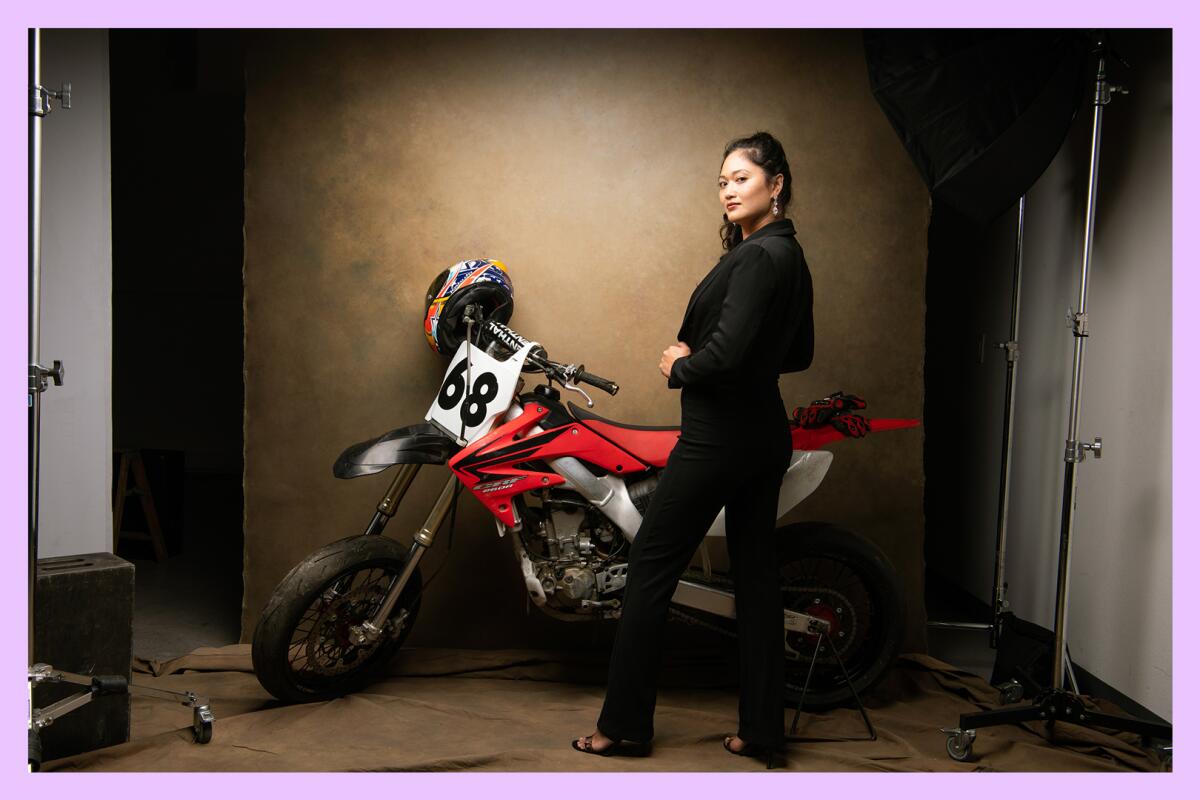
At the Catalina kelp forest, a well-known diving spot, Quý sometimes joins a free-diving club that she says is “very communal and very yogi,” with lots of divers who teach yoga and meditation. She’s even been bringing friends and showing them the ropes at Catalina Island’s waters.
When diving, temperatures can get cold fast, and for free-divers, budgeting time and oxygen is essential. “The oxygen you have in your lungs is all you have until the top, so you have to train well not to run out of air,” she says. “It’s a lot of faith, but for the majority of free divers, your lungs are more capable than you ever knew, and I love showing that to friends and sharing with them. You hold your breath for 30 seconds, then go to a little deeper water, then eight feet, then deeper. Don’t try to hold your breath for four minutes and get all dizzy and woozy.”
For Quý, there’s a synchronicity between her two sports: her bike takes her wherever she wants to free-dive, and both sports bring a level of deep meditation. During a recent trip to Germany, she resurfaced from free-diving in a lake, slipped her wetsuit into her motorcycle storage, hopped on her bike and rode off through the cornfields, bathed by the sunset, free and easy.
“I always just go back to the freedom being on a motorcycle offers, because you can have your little bit of motor-therapy and then come back to whatever else you do in life,” Quý says. “If you make time for that little ride, it really changes your outlook and feeling about the rest of your life.”
3 things to do
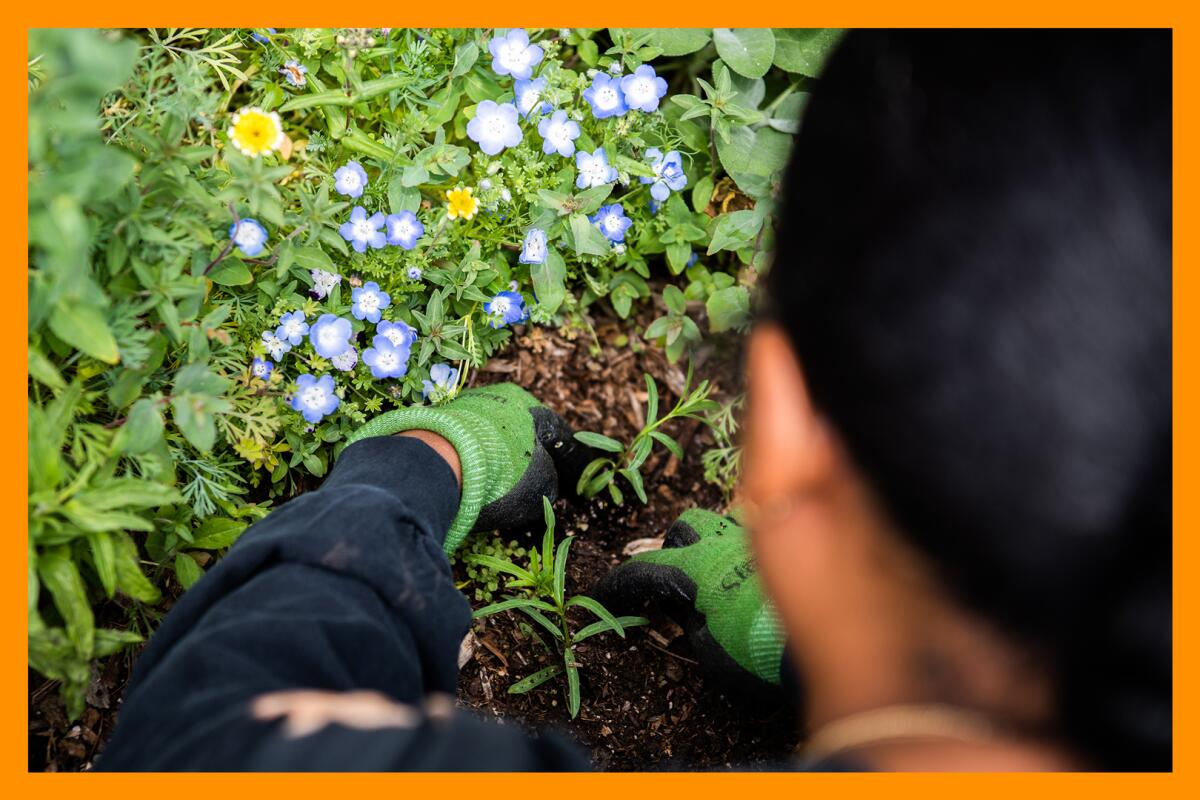
Gardens are gay, but are they Geminis? Roll up your sleeves and don your comfiest jeans to join queer gardening group Club Gay Gardens on Sunday, July 30, from 10 a.m. to noon. You’ll tend the parkway in front of Junior High, a nonprofit community space focusing on the safety and expression of female, queer, nonbinary and artists of color. Not only will you get to weed around native plants, but members share stories, teach each other gardening skills, and “spend a lot of time deciding what astrological sign different plants would be.” The free volunteer group meets the last Sunday of every month from 10 a.m. to noon, and all ages and experience levels are welcome. BYO hydration and sun protection.
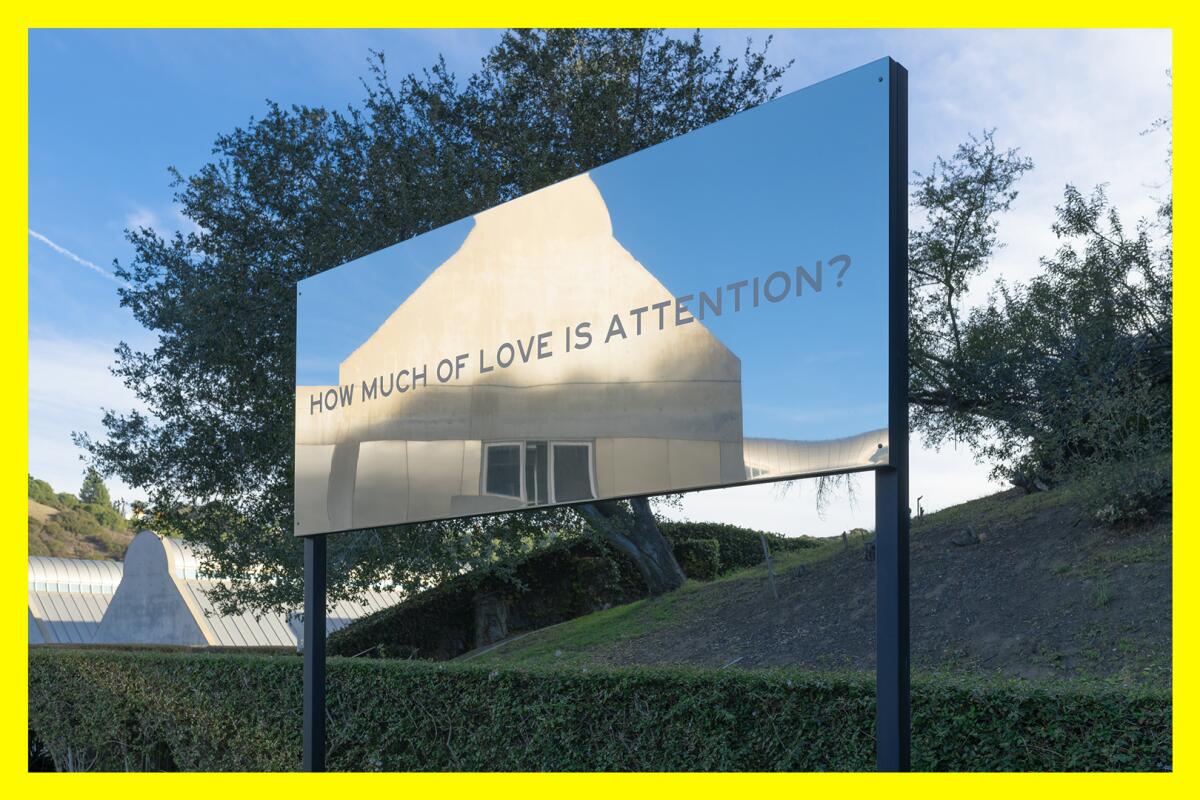
Find your way to provocative art. Artist and professor Chloë Bass’ conversation-starter show “Wayfinding” has hit its final stop, the Skirball Cultural Center, and it’s well worth seeing (and not just because we’re getting a fifth, site-specific addition no other tour location had). The first-ever outdoor exhibition at the Skirball, it’s moored by large mirror sculptures positioned into five sections, each posing a question like “How much of belief is encounter?” and “How much of hope is forgetting?” As you stroll through the exhibit, you’ll find yourself on a journey of questioning that proposes quandary as a place of dwelling rather than discomfort, and internal inquiry as a way of navigating external relationships. Surrounding each question are a few smaller signs that continue the conversation: images, phrases and supporting statements. There’s also audio artwork narrated by Bass and her L.A. collaborators Kyra Jones, Mollie Eisenberg, and Jake Lawler. The Skirball is open from noon to 5 p.m. Tuesday through Friday and from 10 a.m. to 5 p.m. on Saturday and Sunday. General admission is $12, Thursdays are free.
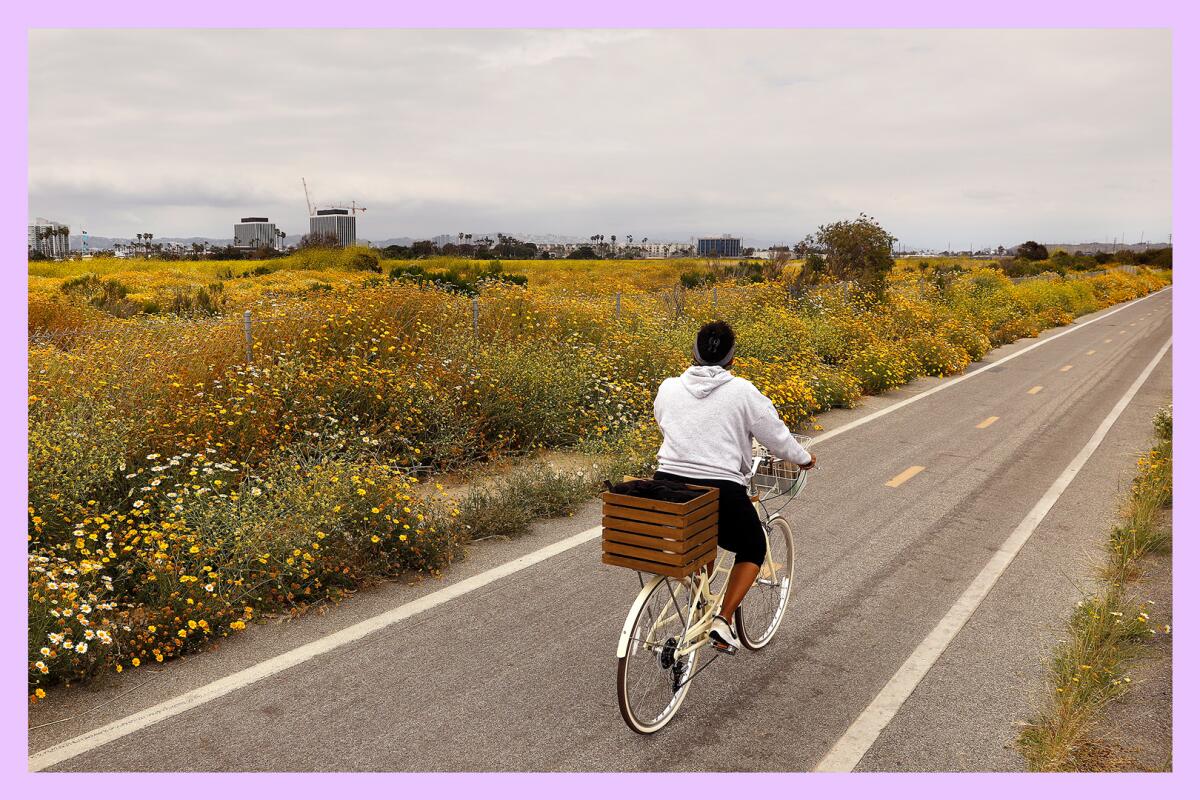
Roll over to a sunset bike ride. Pump those tires for a sunset bike cruise with the L.A. chapter of Latino Outdoors, which will meet Saturday, July 29 from 7 to 9 p.m. at the parking lot west of Del Rey Lagoon (6820 Pacific Ave, Playa Del Rey). The ride will run five to 10 miles, depending on group size and pace. First, you’ll roll through the Ballona Wetlands along the Ballona Creek Bike Path, turn around and ride toward Manhattan Beach and then head back toward Playa del Rey. Rest stops and restrooms will be available. BYO helmet, bike lights, water, snacks and clothing layers. Sign up here for the free ride, and check out the group’s other offerings, including zumba in the park and an outdoor photo challenge and scavenger hunt.
The must-read
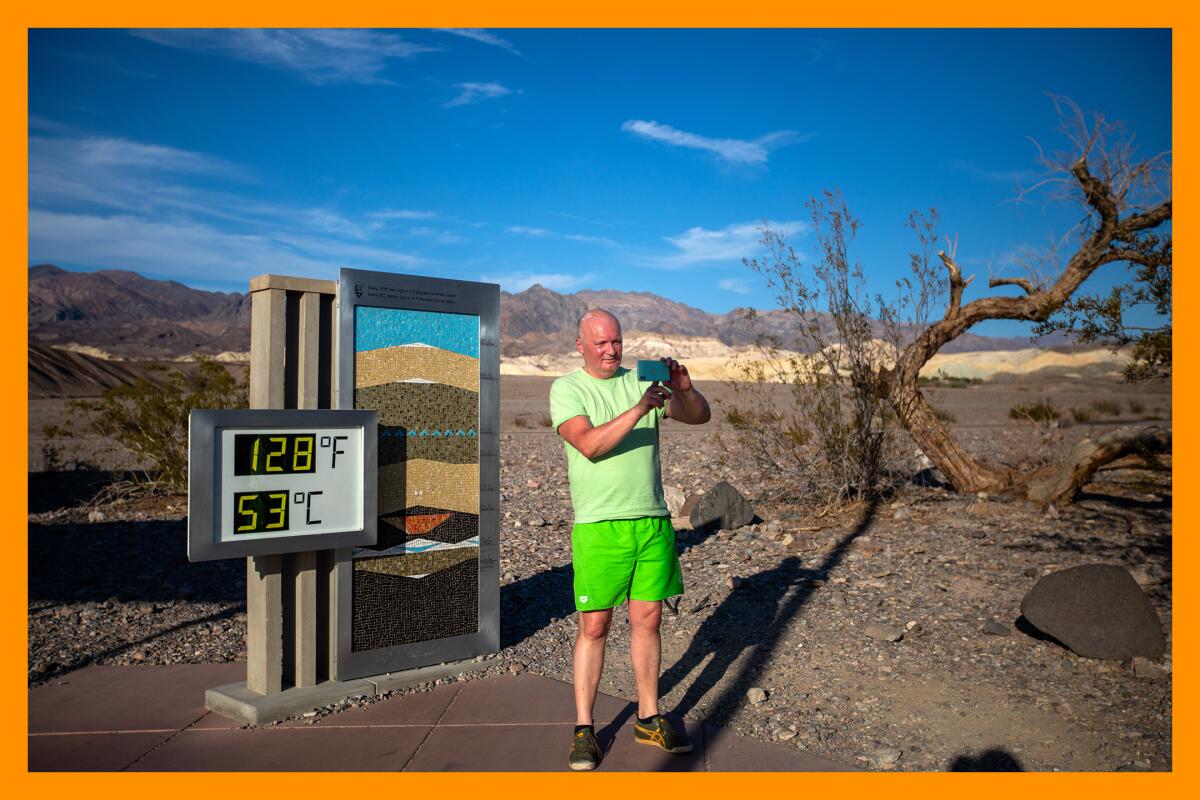
It’s terrifying and sad to learn about an uptick in recent national park deaths, with Eric Zerkel at CNN reporting that more visitors have died of heat-related causes in the parks since June 1 than in an average year. On Saturday, two hikers were found dead in Valley of Fire State Park in Nevada, where the high was 114 degrees that day.
Yes, summer may seem like the most convenient time to visit, since kids are off school and work schedules are more relaxed. But August is a dangerously hot month, so take great caution when hitting the outdoors this summer.
I’ve got a few tips for hot weather hiking, but I stick to shady trails and if it’s 100 degrees, I’m rarely outside. If it seems dangerous, don’t risk it, as temperatures can spike sharply, and the Accuweather RealFeel (which factors in other considerations, including humidity, elevation, wind speed, atmospheric pressure, precipitation intensity and type) can be much worse than the actual numbers indicate.
Happy adventuring,

P.S.
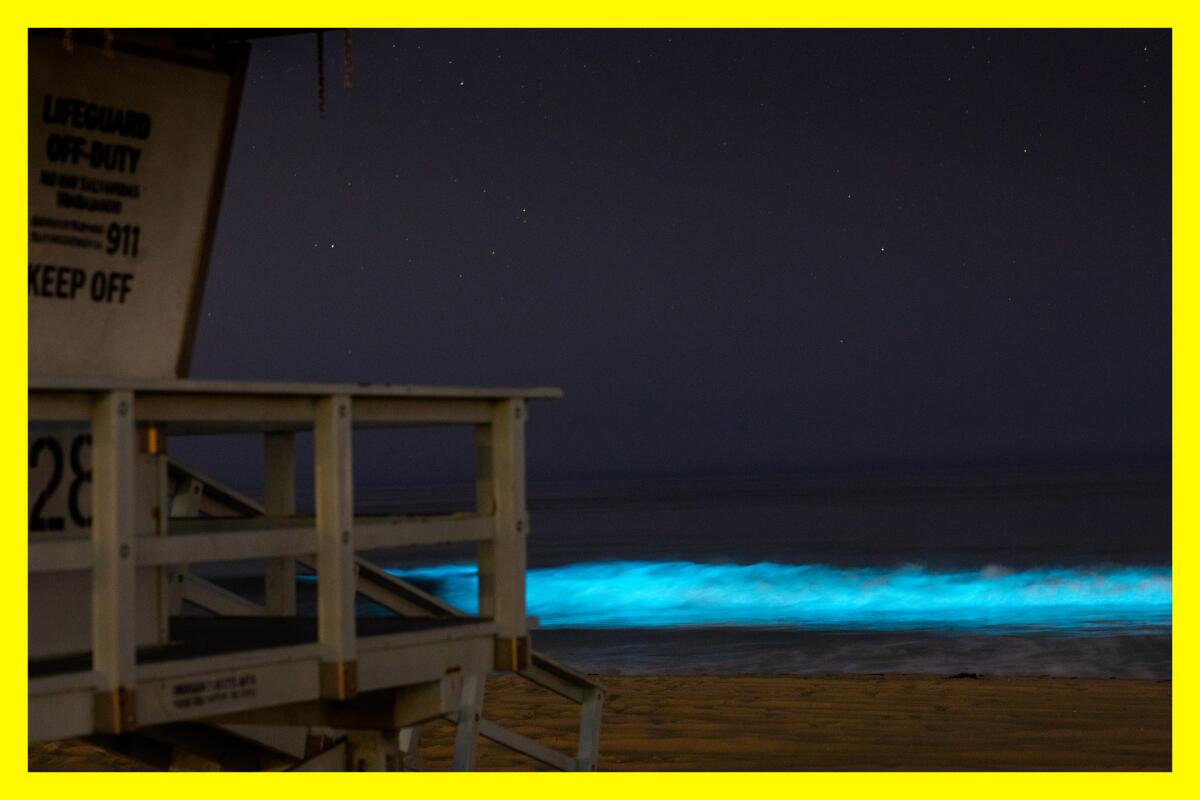
So what are you doing, then, if you’re not hitting the trails? Angelenos are at the beaches, of course — or out on the roads, trying to get there.
A recent visit to Leo Carrillo State Park had us hunting for sea creatures among the tide pools. Because of the tide times, we only found a few items of interest, including a sea star and a crab claw, and finding elusive beach parking was a hunt of its own. But the cool breezes coming down the coast were enough of a reward for our long drive out from the San Gabriel Valley, where temps have hit scorching numbers in recent weeks.
If you’re looking for tide pools and sea creatures, consult the tide times and our list, “8 SoCal tide pools to view magical sea life this weekend.” If you’d rather view marine life closer to home (or at least have a sure bet of seeing some), head to Aquarium of the Pacific, where you can view the new Southern California Gallery, which features some pretty cool animals native to our local waters, including leopard and horn sharks, the California two-spot octopus, the California scorpionfish, California spiny lobsters, Catalina goby, and California’s state marine fish, the Garibaldi.
And, if you’re a night owl like me, think about driving out to the beach to hunt for another mystical creature: Southern California’s bioluminescence. The glow is visible at night, and we’ve got tips on how to chase it.
For more insider tips on Southern California’s beaches, trails and parks, check out past editions of The Wild. And to view this newsletter in your browser, click here.
Sign up for The Wild
We’ll help you find the best places to hike, bike and run, as well as the perfect silent spots for meditation and yoga.
You may occasionally receive promotional content from the Los Angeles Times.




